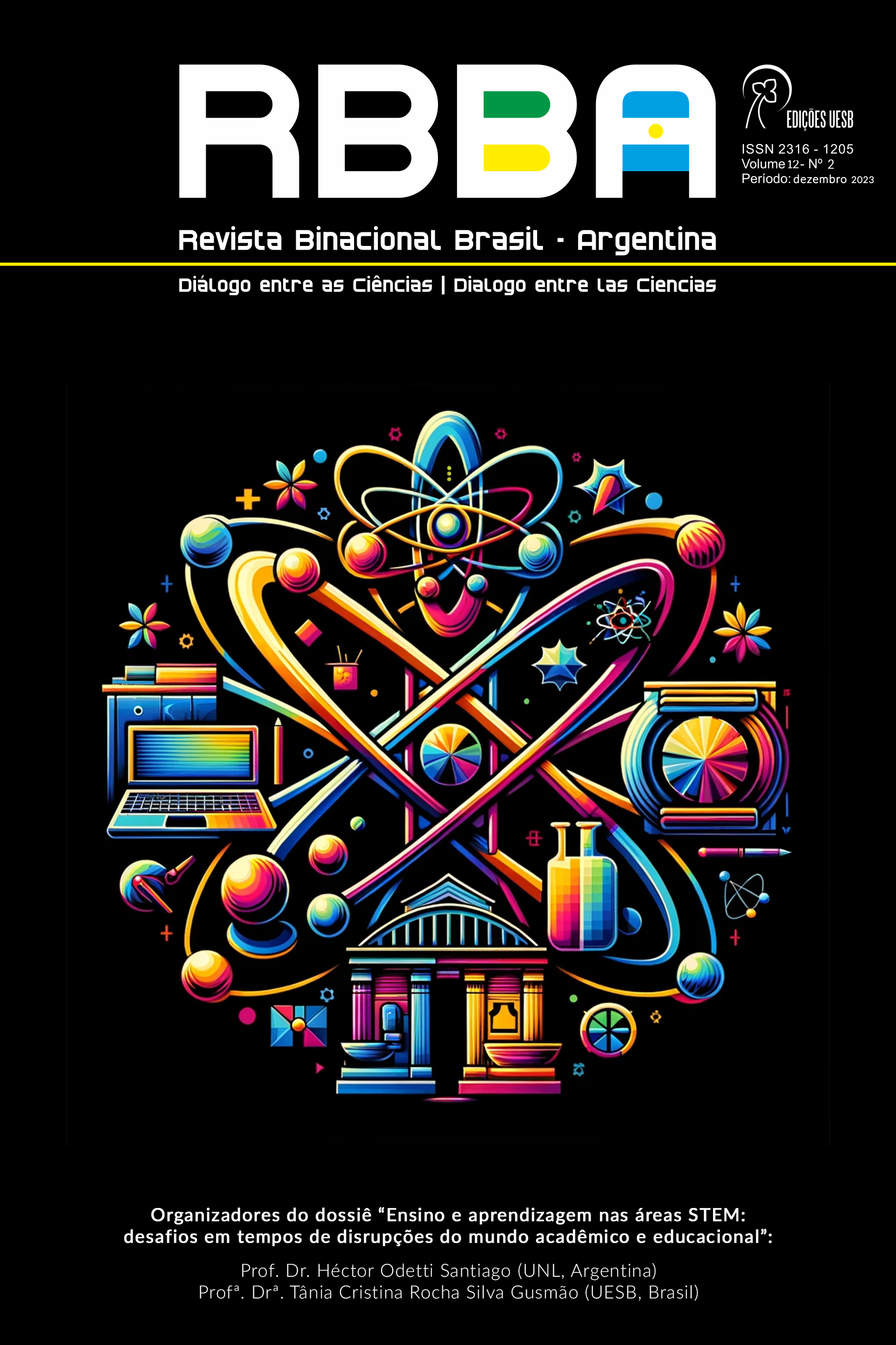CREATIVITY IN EDUCATION: BIBLIOMETRIC STUDY OF A DECADE OF RESEARCH
DOI:
https://doi.org/10.22481/rbba.v12i02.13362Keywords:
Creativity, Education, BibliometricsAbstract
We present a bibliometric study of research in Portuguese, English and Spanish between the years 2010 and 2021 in the scientific bases SciELO, b-on and Biblioteca Virtual em Saúde (VHL) regarding creativity in Educational Science with the aim of finding evidence that enable renewed scientific knowledge and greater clarity regarding the main characteristics of these studies. We sought to map publications and verify how research related to Creativity, especially in the area of knowledge of Education, is distributed globally with the initial aim of recording the scientific whole. This study offers indicators of scientific production, the relationships and interactions between its elements as a way of measuring productivity and the relationships between documents in terms of countries, researched themes, interested institutions or even authors and their scientific connections. The bibliometric study was carried out using the VOSviewer software. It was found that creativity is a topic of research in the world and a concern in different areas of knowledge, maintaining a strong connection in Education and Psychology, and there is growth in scientific interest in the subject, in addition, it can be seen that international scientific cooperation needs to increase, as there is a tendency towards epistemological closure. The study also demonstrated a lack of studies published under complex epistemology, the place the authors speak.
Downloads
References
LENINE, E.; MORSCHBACHER, M. Pesquisa bibliométrica e hierarquias do conhecimento em Ciência Política. Rev. Bras. Ciênc. Polít., Brasília, n. 31, p. 123- 160, 2020.
MORIN, E. Os sete saberes necessários à educação do futuro. São Paulo: Cortez; Brasília: UNESCO, 2000.
MORIN, E. O Método 5: A humanidade da Humanidade e a identidade humana. Porto Alegre: Sulina, 2012.
UNESCO. Reimagine o futuro: Inovação para cada criança. UNICEF, Divisão de Comunicação. New York, NY – USA. Disponível em: www.unicef.org; http://data.unicef.org
VAN ECK; N. J.; WALTMAN, L. VOSVIEWER MANUAL. Universiteit Leiden, CWTS. Holand, 2020. Disponível em: https://www.vosviewer.com/documentation/Manual_VOSviewer_1.6.15.pdf. Acesso em janeiro de 2022.
Downloads
Published
How to Cite
Issue
Section
License
Copyright (c) 2023 Revista Binacional Brasil-Argentina: Dialogue between the sciences

This work is licensed under a Creative Commons Attribution 4.0 International License.






